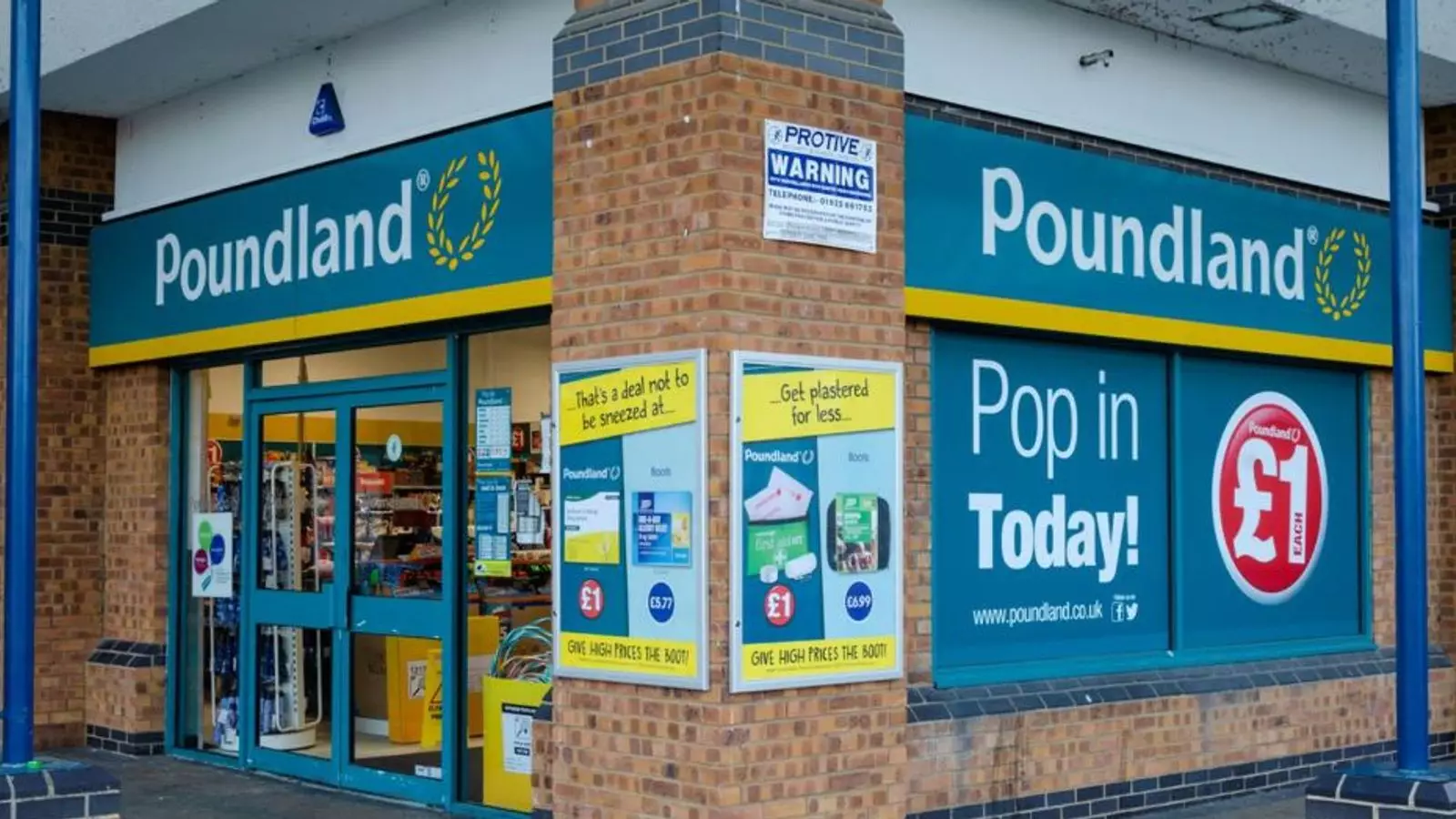Poundland, a prominent discount retailer in Britain, is grappling with significant challenges that threaten its operational viability. Owned by the Pepco Group since 2016, Poundland is currently facing a crisis that has compelled the company to enlist the expertise of City advisers to explore urgent solutions. The latest reports reveal that the retailer is experiencing a notable sales slump, raising alarm bells about the potential need for restructuring, store closures, or even a complete sale of the business. With 825 stores across the UK and a workforce of approximately 18,000 employees, the chain operates in a fiercely competitive market that includes rivals like Home Bargains and B&M, as well as major supermarket chains.
In a bid to stabilize its financial condition, Pepco Group has engaged AlixPartners, a consulting firm, to assist with strategic options tailored to address the current decline. This partnership underscores the gravity of the situation facing Poundland, particularly after the chain recorded a difficult Christmas trading period that saw like-for-like sales plummet by 7.3%. This decline is attributed to a more challenging consumer environment in the UK—where inflation and rising costs have impacted discretionary spending—as well as margin pressures that have consistently burdened retailers.
In evaluating the range of potential paths forward, options such as a company voluntary arrangement and formal restructuring plans have been tentatively suggested. While no definitive decisions have been made, the overarching goal remains clear: improve cash performance and revisit the retail proposition that once made Poundland a go-to destination for budget-conscious shoppers.
The reports from Pepco Group point towards an organization that acknowledges the dire need for change. In its trading statement, it also emphasized that although the sales downturn has been disheartening, it believes the worst may be behind them. The previous year’s comparative outcomes did not factor in recent adjustments to the clothing and general merchandise categories, which could prove influential in stabilizing future sales. Nevertheless, the decision not to expand Poundland’s store portfolio this year reflects a cautionary approach to risk management typical of businesses in distress.
As the company engages with AlixPartners, a critical aspect of the assessment lies in honing in on efficiencies and cutting unnecessary costs across the board. The retail landscape has become increasingly challenging, and businesses must adapt to remain relevant; a thorough, analytical evaluation is essential for Poundland to identify its core strengths and leverage them effectively in the coming months.
Stephan Borchert, Chief Executive of Pepco Group, is navigating the complex situation with an open mind towards “every strategic option” to revive Poundland. His leadership comes at a pivotal time, especially as he prepares to share formal plans for the chain’s future on March 6 at a capital markets day in Poland. Understanding consumer behavior and identifying trends will be paramount in crafting a revitalization strategy that resonates with shoppers looking for value amid economic uncertainty.
In addition to focusing on core strengths, there has been a conscious effort to revamp the product mix that Poundland offers. Expanding the range of fast-moving consumer goods (FMCG) and reimagining general merchandise offerings can provide fresh opportunities for engagement with customers who seek both affordability and convenience in their shopping experiences.
Poundland’s struggles are not isolated; they reflect broader trends in retail as businesses grapple with evolving consumer preferences and economic pressures. While Pepco and Dealz, other chains under the parent company, are experiencing sales growth, Poundland’s scenario may require a more nuanced strategy to align with changing market dynamics. The contrast within the group accentuates the need for a tailored response to Poundland’s unique challenges, reinforcing that not all brands can thrive under similar market conditions.
As the crisis continues to unfold, stakeholders and consumers alike will be closely watching how Poundland responds. A failure to adapt could mark a significant shift in the discount retail landscape, whereas a successful turnaround could serve as a case study for other retailers facing similar predicaments. The stakes are high, and the coming months will be critical in determining whether Poundland can reclaim its former status as a leader in UK’s discount retail arena.

